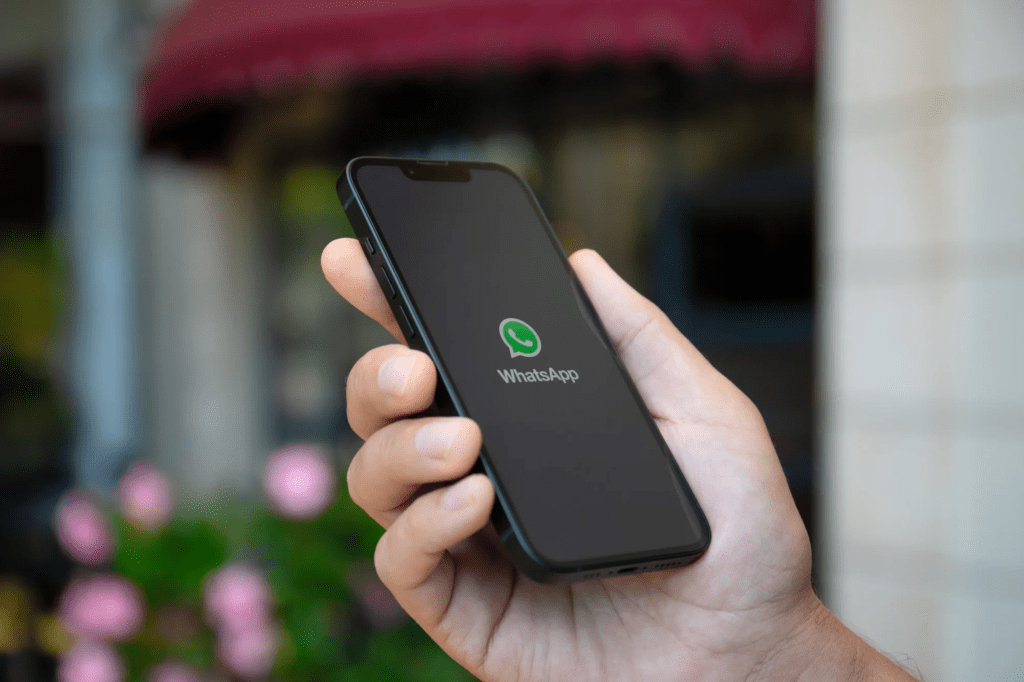In today’s hyper-connected world, our smartphones have become an extension of ourselves. They store everything from personal photos to sensitive financial information, making them prime targets for digital surveillance. While many apps offer convenience, they can also pose significant privacy risks, especially when they demand excessive permissions. In this article, we’ll explore some popular apps that might be spying on you, compromising your personal privacy, and threatening your digital security.
1. WhatsApp: The Hidden Risks Behind the Popular Messenger

WhatsApp, known for its encrypted communication, has been a go-to app for millions worldwide. However, its vulnerabilities have caused concern. Past versions of WhatsApp had loopholes that allowed hackers to access users’ devices through malicious software. While these issues have been patched, the fact remains that the app collects vast amounts of user data, which can potentially be exposed if another vulnerability is discovered.
The key takeaway here? Ensure you always have the latest version of WhatsApp installed to minimize risks, and regularly review app permissions to keep your personal data secure.
2. Instagram: More Than Just Photo Sharing
Instagram is a social media giant that boasts millions of daily users sharing images, videos, and stories. However, many users don’t realize that Instagram collects extensive data about its users. From location tracking to access to your camera and microphone, the app could potentially spy on your activities without your explicit knowledge.
Instagram’s parent company, Meta (formerly Facebook), has come under scrutiny for its data collection practices. This concern has led users to rethink how much personal information they share on the platform. To safeguard your privacy, it’s essential to review Instagram’s permission settings and disable any unnecessary access to your phone’s features.
3. Facebook Messenger: A Breach of Privacy in Your Inbox
Facebook Messenger is another app riddled with privacy concerns. Despite claims of end-to-end encryption for secure communication, the app has a long history of data breaches and vulnerabilities. Facebook itself has been involved in numerous scandals involving the misuse of personal data, further fueling concerns about the safety of Messenger.
The app’s permissions are also cause for alarm, as it requests access to your contacts, messages, microphone, and more. If you’re worried about your data being compromised, consider switching to a more secure messaging app like Signal or Telegram, which offer better encryption and privacy protections.
4. Flashlight Apps: Unnecessary Permissions That Compromise Security
Flashlight apps may seem harmless, but they are notorious for requesting permissions far beyond what is necessary. Many of these apps ask for access to your contacts, location, and even your camera—permissions that have nothing to do with providing a simple light source. Given that most modern smartphones have built-in flashlight functionality, these third-party apps are redundant and pose an unnecessary security risk.
It’s best to uninstall any third-party flashlight apps and rely on your phone’s default feature to avoid exposing your personal data to potential spying.
5. Angry Birds: The Game That Could Be Leaking Your Data

Angry Birds, once a wildly popular mobile game, has come under fire for exposing users’ personal information to third parties. While it may seem like innocent fun, the app’s data-sharing practices have been linked to advertising companies and, in some cases, government surveillance programs. Though developers claim to have fixed these issues, it’s still a good idea to be cautious when downloading games that request access to your personal data.
If you’re concerned about your privacy, consider removing outdated games like Angry Birds and opting for more secure alternatives.
6. Zombie Mod: A Game with More Than Just Entertainment Value
Zombie Mod is another mobile game that has gained a bad reputation for collecting user data. Through aggressive ad tactics and hidden data-tracking mechanisms, the app has been flagged as a security risk. If you’ve played Zombie Mod in the past, it’s time to delete it and secure your Google account by changing passwords and reviewing app permissions.
Gaming apps like Zombie Mod often hide behind flashy entertainment, but they can expose you to serious privacy risks. Always double-check the permissions requested by any mobile game to ensure your data isn’t being misused.
7. DoorDash: Convenient Delivery with Privacy Concerns

DoorDash has made food delivery a breeze, but it comes at the cost of your privacy. Recent reports have revealed that the app collects extensive data on users, including location tracking that continues even when the app is closed. This data is often shared with third parties for marketing purposes, raising red flags about how secure your information truly is.
To limit DoorDash’s access to your data, make sure to adjust the app’s privacy settings, or consider switching to a delivery service with a stronger focus on user privacy.
8. Children’s Apps: A Hidden Danger to Young Users
Many apps designed for children, particularly those with inadequate reviews or security protocols, can pose significant risks to privacy. Children are especially vulnerable to apps that collect data without parental consent. Parents should monitor the apps their children download, ensuring they meet privacy standards and don’t expose young users to unwanted data collection or inappropriate content.
Adding parental controls to manage downloads can provide an extra layer of security and help protect your child’s digital footprint.
9. Dating Apps: Swiping Right Could Expose Your Personal Data

Dating apps like Tinder and Grindr may help you find love, but they also expose you to privacy risks. These apps collect massive amounts of personal information, from your location to intimate details about your life. In some cases, data from dating apps has been sold to third parties, raising concerns about how secure your personal information really is.
Before diving into the dating pool, make sure to review the privacy settings of any app you use, and be cautious about what personal details you share.
10. Ring Doorbell App: Keeping an Eye on Your Home or on You?
Ring Doorbell, owned by Amazon, offers a sense of security by allowing users to monitor their homes remotely. However, the app has been criticized for collecting and sharing user data with third-party marketing companies. While the device provides safety for your home, it might not be doing the same for your personal information.
If you’re using Ring Doorbell, take the time to review its privacy settings and limit the amount of data shared with third parties.
11. Weather Apps: Stormy Security Risks

Some weather apps have been linked to data breaches and malware infections. These apps, designed to provide weather forecasts, often ask for excessive permissions like access to your location, contacts, and more. If you download the wrong weather app, you could unknowingly expose your personal data to malicious actors.
Stick to reputable weather apps from trusted sources and be wary of free versions that request too many permissions.
12. CamScanner: A Handy Tool with Malicious Components
CamScanner was once a popular document-scanning app until it was discovered that it contained malicious components that could infect user devices. While the app has since been removed from the Google Play Store, many users still have it installed on their phones, posing a significant security risk.

If you’re still using CamScanner, it’s time to delete it and switch to a more secure scanning alternative.
Conclusion: Protect Your Privacy, One App at a Time
Your smartphone is a treasure trove of personal data, and it’s essential to be vigilant about the apps you download. Many seemingly innocent apps can collect, share, or even sell your information without your knowledge. By reviewing app permissions, regularly updating software, and deleting questionable apps, you can protect your privacy and secure your digital footprint in an increasingly connected world. Stay safe, stay aware, and take control of your smartphone’s security.


